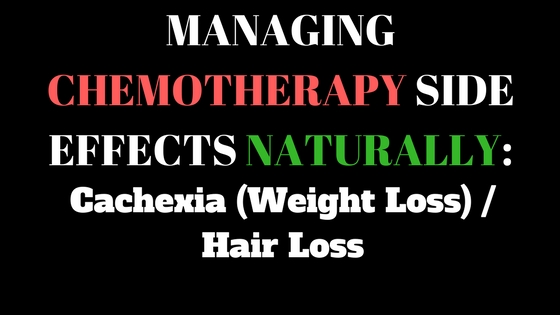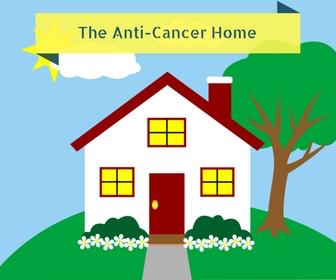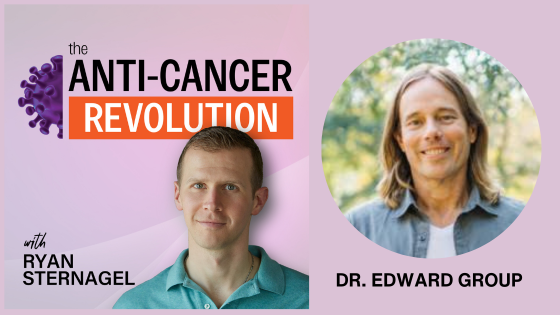Managing Chemotherapy Side Effects Naturally
Dealing with the side effects of conventional cancer treatment can be one of the most challenging aspects of battling the disease. Below are some ideas on integrative interventions that may be helpful in addressing some of the more common side effects of conventional therapy such as cachexia (weight loss) and hair loss. As always, please make sure to discuss with your physician. Adding a trained naturopathic oncologist to your team can also be invaluable. You can find one here: https://oncanp.org/
Weight Loss / Cachexia
Cachexia or wasting syndrome is loss of weight, muscle atrophy, fatigue, weakness, and significant loss of appetite. 80% of cancer patients are malnourished and 40% die of malnutrition.
Consider melatonin, glutamine, Haelen 951 (Use “MKCC’ for 5% off) and/or Master Amino Acid Pattern (MAP™) .
MAP™ is a dietary protein substitute that provides the MAP Master Amino Acid Pattern® (U.S. Patent No. 5,132,113) a unique pattern of essential amino acids in a highly purified, free, crystalline form. After oral ingestion, MAP™ is rapidly utilized. MAP™ does not require the aid of peptidases and therefore is absorbed within 23 minutes through the first 100 cm of functional small intestine.
The results of comparative, double-blind, triple- and quintuple-crossover Net Nitrogen Utilization® (NNU®) clinical studies have shown that the subjects, while taking MAP™, as a dietary protein substitute, achieved a body’s 99% NNU®. This means that 99% of MAP’s constituent amino acids followed the anabolic pathway, thus acting as precursor of body’s protein synthesis.
MAP™ could be an interesting adjunct to those pursuing a ketogenic diet as part of their cancer treatment plan. (1)
A recent review found mixed results in improvements of lean body mass of cancer patients using combination therapy of β‐hydroxy‐β‐methylbutyrate (HMB), arginine, and glutamine (2), however glutamine supplementation has demonstrated benefit in other studies (3, 4). Although the mechanism in treatment of cachexia is unclear, it is thought that glutamine, a modulator of protein turnover, enhances net protein synthesis.
A recent review entitled The Efficacy of Oral Nutritional Intervention in Malnourished Cancer Patients, concluded that “nutritional intervention improves the indices of nutritional status, inflammation, immune function, and QOL. Nutritional status indices, QOL measures and duration of hospital stay were improved in about 40% of studies. One or more markers of immune function and inflammatory responses were improved by ONS in 65% of selected studies. Based on the reported mechanistic insights on malnutrition in cancer patients, nutritional formulas containing extra functional components should be considered for further development.”
[sc name=”squareone2″]
Hair Loss
A rodent study looked at the effects of AHCC supplementation on cytosine arabinoside (Ara-C) induced hair loss. Of the Ara-C treated rats 71.4% showed severe alopecia and 28.6% showed moderate alopecia. However, the AHCC treated Ara-C group was significantly protected from alopecia. Ara-C treated rats had profound loss of hair follicles but the Ara-C plus AHCC-treated group had mild losses of follicles (5).
You may also be interested in:
Naturally Manage Chemotherapy Induced Leukopenia / Neutropenia
Naturally Manage Chemotherapy Induced Mucositis
Naturally Mitigate Neuropathy and Other Vincristine Side Effects
Applying Integrative Cancer Therapies
Evidence Based Integrative Approaches for Cancer: Audra & Justin Wilford of MaxLove Project
Resources:
- https://www.futuremedicine.com/doi/abs/10.2217/bmt.15.15?journalCode=bmt
- A systematic review on the role of vitamins, minerals, proteins, and other supplements for the treatment of cachexia in cancer: a European Palliative Care Research Centre cachexia project
- Experimental Cancer Cachexia Changes Neuron Numbers and Peptide Levels in the Intestine: Partial Protective Effects after Dietary Supplementation with L-Glutamine.
- Supplementation with L-glutamine prevents tumor growth and cancer-induced cachexia as well as restores cell proliferation of intestinal mucosa of Walker-256 tumor-bearing rats.
- The effect of active hexose correlated compound in modulating cytosine arabinoside-induced hair loss, and 6-mercaptopurine- and methotrexate-induced liver injury in rodents.
[sc name=”Toxic Home Transformation”]









